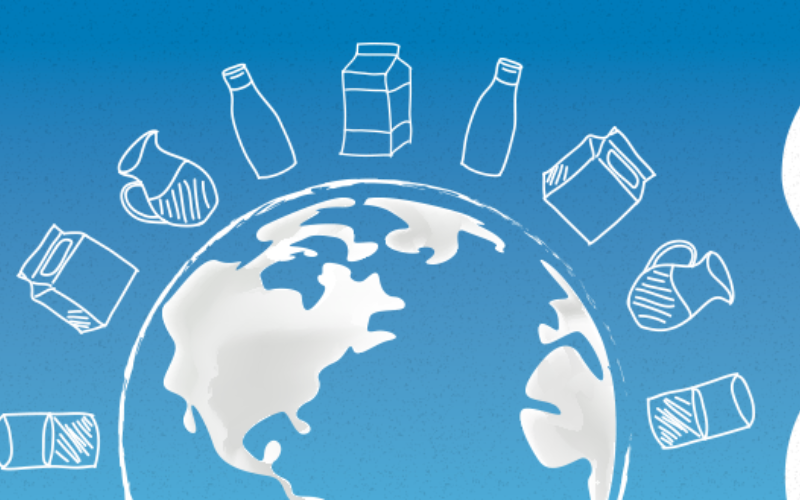White Revolution 2.0: India’s New Era of Dairy Empowerment
Sourse: in.edairynews.com
As India marks World Milk Day 2025, the nation stands as the globe’s largest milk producer, underscoring a transformative era in its dairy industry through technology and sustainability.

India celebrates World Milk Day 2025 under the theme "Let’s Celebrate the Power of Dairy," reflecting on the revolutionary progress of its dairy sector. The genesis of India’s dairy success can be traced back to the work of Dr. Verghese Kurien during the first White Revolution (1970-1996), which led India to become self-sufficient in milk.
As of 2023-24, India produces 239.3 million tonnes of milk annually, accounting for over 24% of global production. White Revolution 2.0 embodies a more advanced and sustainable phase, driven by technology and climate resilience. Key initiatives include AI-powered tracking, genomic selection, and digital livestock records. Initiatives like Rashtriya Gokul Mission and e-Gopala App further support this evolution, with significant investments fostering infrastructural growth. Sustainability remains crucial, with efforts directed towards reducing the dairy industry's GHG emissions. Low-emission fodder, biogas digesters, and solar-powered units are in focus, alongside research in A2 genetics and blockchain for traceability.
The private sector anticipates robust growth, fueled by rising demands for organic and functional dairy products. With an eye on export expansion, India witnessed a 38% surge in exports to regions like SAARC and ASEAN. Challenges such as price fluctuations and adulteration persist, yet with continuous innovation and inclusive growth, the sector aims for a prosperous and sustainable future.
As of 2023-24, India produces 239.3 million tonnes of milk annually, accounting for over 24% of global production. White Revolution 2.0 embodies a more advanced and sustainable phase, driven by technology and climate resilience. Key initiatives include AI-powered tracking, genomic selection, and digital livestock records. Initiatives like Rashtriya Gokul Mission and e-Gopala App further support this evolution, with significant investments fostering infrastructural growth. Sustainability remains crucial, with efforts directed towards reducing the dairy industry's GHG emissions. Low-emission fodder, biogas digesters, and solar-powered units are in focus, alongside research in A2 genetics and blockchain for traceability.
The private sector anticipates robust growth, fueled by rising demands for organic and functional dairy products. With an eye on export expansion, India witnessed a 38% surge in exports to regions like SAARC and ASEAN. Challenges such as price fluctuations and adulteration persist, yet with continuous innovation and inclusive growth, the sector aims for a prosperous and sustainable future.









